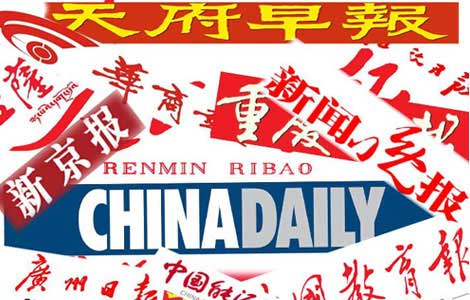 |
|
|
|
|||||||||||
SEOUL - Nuclear technology producers, including the United States and China, urgently need to slash the use of high-enriched uranium in research reactors for fear it could fall into the hands of terrorists.
So advises Zhu Xuhui, a researcher with the China National Nuclear Corporation and an expert in uranium enrichment and nuclear fuel, who told China Daily that he expected the Seoul Nuclear Security Summit this week to call for greater use and exports of low-enriched uranium.
Zhu, who graduated from Tsinghua University in 1962, took part in the Six-Party Talks between 2003 and 2007 on denuclearization of the Korean peninsula as a member of the Chinese delegation.
The US and the former Soviet Union, the leading nuclear technological powers, started exporting reactors in the 1950s, including research reactors containing high-enriched uranium with a density greater than 90 percent.
Now those research reactors, most purchased by academic institutions and colleges, are "posing threats to nuclear security" due to lack of funding in security facilities and manpower, Zhu said.
"Once obtained by terrorists, the high-density uranium can be extracted and used in processes that could cause a nuclear explosion," said Zhu.
In recent years, the two major suppliers, the US and Russia, started repatriating the high-enriched uranium reactors in coordination with the International Atomic Energy Agency.
But the threat of criminal organizations obtaining nuclear materials still hangs over the international community, according to the IAEA's data base on illicit trafficking.
From July 2010 to June 2011, members of IAEA reported 172 incidents to the database.
Although 126 of the unauthorized activities were reported without any apparent connection to criminal activity, in almost a third of the nuclear material was reported as non-recovered, IAEA said in its Nuclear Security Report 2011.
Meanwhile, reactors with low-enriched uranium have proved a better option, Zhu said.
China, the US, Russia and other nuclear producers are seeking to change civil reactors using high-density uranium in nuclear power plants and in scientific institutions to low-enriched uranium ones.
However, the process of upgrading the reactors is slow, Zhu said.
"It is sometimes undecided who pays for the upgrade, and a successful transformation requires a specific design for every single reactor that has varying details," he said.
China, Zhu added, has mastered the key technology to transforming the high-enriched uranium reactors, and it will shape both its export policies and domestic construction around reactors with low-enriched uranium.
Along with the US, China has begun construction on a nuclear security center following the Nuclear Summit in 2010.
"The center will be a critical regional platform to promote nuclear security and provide training to nuclear security workers of the countries in the region," Zhu said.
The reporter can be reached by zhangyunbi@chinadaily.com.cn

|

|

|

|

|

|